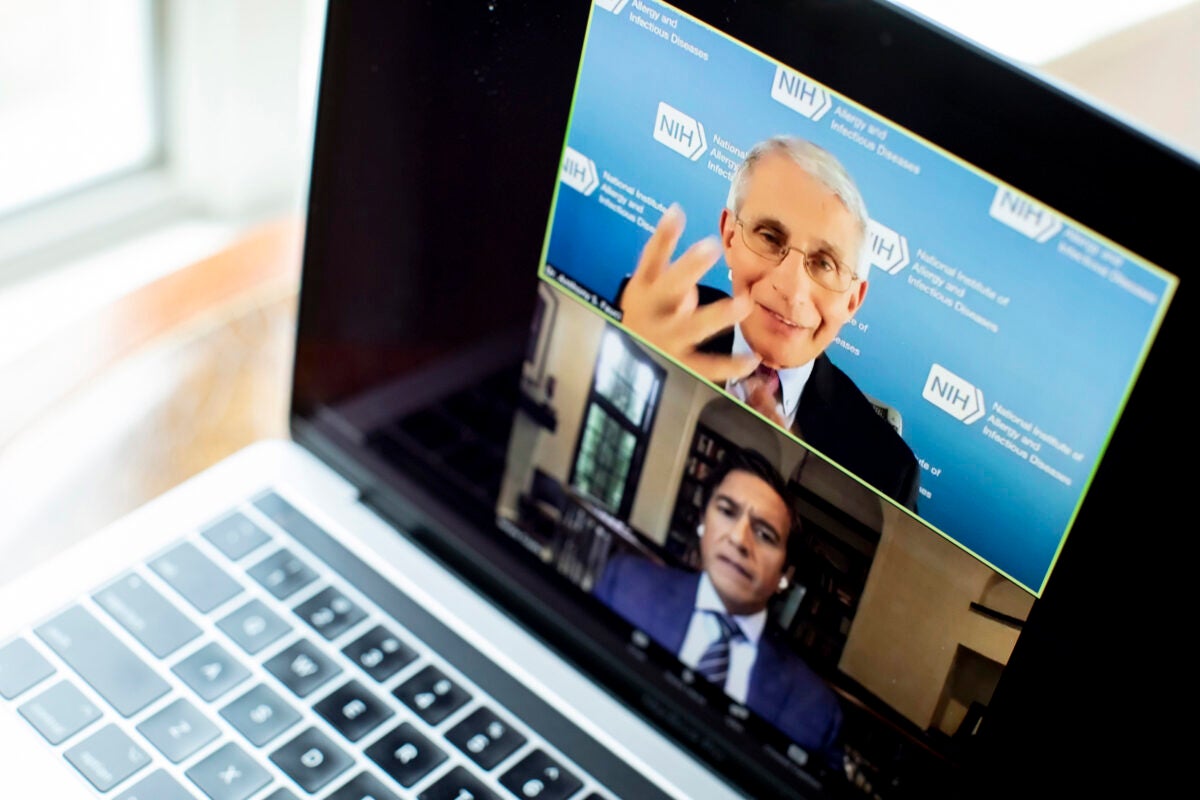Health
Can we talk?
Conversation makes a big difference in study of isolated older people
Just talking to other people can stimulate different brain functions among socially isolated older adults, even when the interactions are internet-based, according to a new clinical trial out of Massachusetts General Hospital.
The results are published in The Gerontologist, a flagship journal of the Gerontological Society of America.
“We initiated the first proof of concept behavioral intervention study in 2010, nearly a decade prior to the COVID-19 pandemic drawing attention to the detrimental effects of social isolation on our overall health,” explained lead author Hiroko H. Dodge, the principal investigator of the National Institutes of Health–funded trials.
The 186-participant phase 2 randomized trial, called I-CONECT, used the internet and webcams to allow for conversational interactions between trained interviewers and socially isolated individuals aged 75 years and older who had normal cognition or mild cognitive impairment.
Investigators rotated conversation partners assigned to each participant to enhance the novelty of the experience, provided user-friendly devices allowing participants without any internet/webcam experience to easily engage in video-based conversations, and encouraged conversations with standardized daily themes and picture prompts.
Thirty-minute conversations were conducted four times per week for six months and then twice per week for an additional six months. A control group of similar individuals did not participate in such conversations, but both the intervention and control groups received weekly 10-minute telephone check-ins.
After the initial six-month period, the intervention group had a higher global cognitive test score compared with the control group with a large effect size among those with mild cognitive impairment. Also, intervention group participants with normal cognition had scores indicating higher language-based executive function.
At the end of final six-month period, intervention group participants with mild cognitive impairment had test scores indicating better memory-related brain function than those in the control group. Measures of emotional well-being improved in both control and intervention groups, suggesting that emotion can be boosted by brief weekly telephone calls while improving cognitive function requires frequent conversational engagement.
Also, brain imaging tests showed that the intervention group had increased connectivity within the dorsal attention network—a region important for the maintenance of visuospatial attention—relative to the control group, although this finding must be interpreted carefully because of the limited number of participants assessed due to COVID-19–related research restrictions.
Upon requests from former trial participants asking to continuously have conversations, Dodge and her colleagues have established a nonprofit organization, the I-CONNECT Foundation. The foundation has been providing social interactions to isolated older individuals in the community free of charge, using the same materials used in the trial.
“Our next goal is to extend these activities to reach more isolated individuals in need, as well as to delve into the biological mechanisms underlying the impact of social interactions on our brain functions,” said Dodge. “Providing frequent stimulating conversational interactions via the internet could be an effective home-based dementia risk-reduction strategy against social isolation and cognitive decline. We plan to extend this therapy to geriatric outpatient populations, for which we are currently fundraising, and also examine its effectiveness for mild to moderate depressive symptoms.”
The team is also exploring the possibility of providing conversational interactions via chatbot — an artificial intelligence – trained robot that provides stimulating conversations as a cost-effective intervention. “We are aware that human contacts are critically important for our emotional well-being, but for cognitive stimulations, chatbots might work as effectively as humans, which we are currently investigating,” said Dodge, who serves as the director of Research Analytics at the recently inaugurated Interdisciplinary Brain Center at MGH and is a faculty member of the Harvard Medical School.
Funding was provided by the National Institute on Aging.














